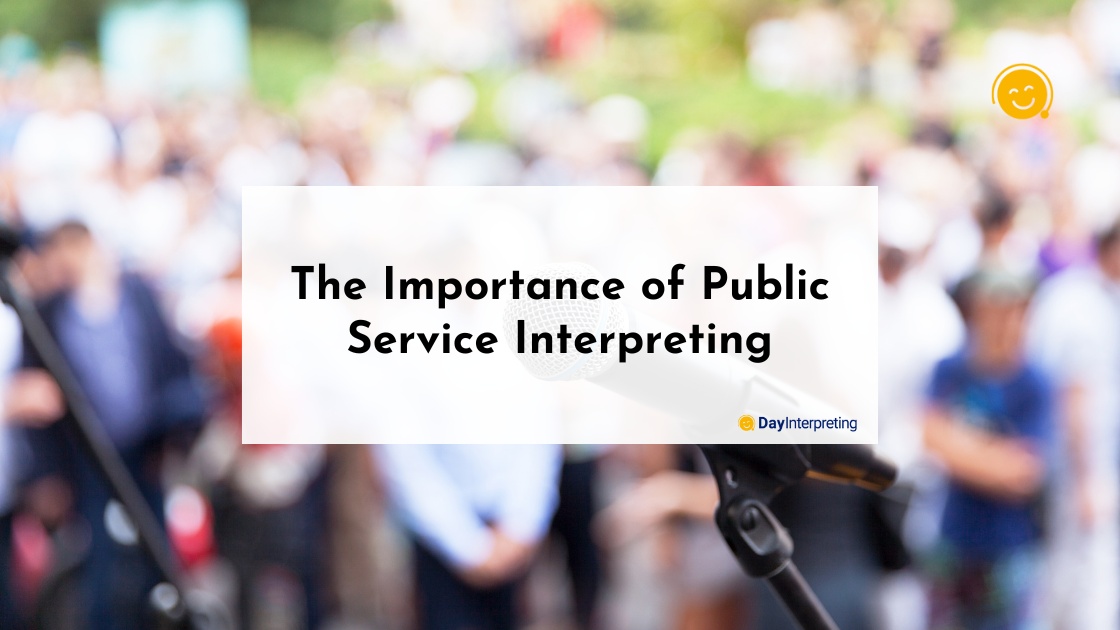Public service interpreting is an essential profession in today’s world. Interpreting solutions provide invaluable assistance in bridging language and cultural gaps between speakers of different languages. Without the help of professional interpreters, countless individuals around the world would not be able to access vital public services, education, and healthcare.
In this blog post will discuss the importance of public service interpreting and how it has become a cornerstone in providing meaningful communication between people from diverse backgrounds. We look at how these interpreters act as public service providers in their own right and explore the challenges and benefits of this service.
What is Public Service Interpreting?
Public service interpreting involves interpretation to enable two-way communication between speakers of different languages. Interpreters are trained professionals who can accurately convert one language into another, in real-time, without changing the meaning of the original message.
Public service interpreting is an important part of many fields, such as healthcare, education, and legal proceedings. Professional interpreters are required to accurately and precisely convey the intended message of both the speaker and the listener. Public service interpreting provides an essential service that enables people from different backgrounds to communicate effectively with each other.
The Role of the Public Service Interpreters
Public service interpreting is a vital service for many individuals and organizations. An interpreter serves as a bridge between two languages, allowing for mutual understanding and communication between people of different linguistic backgrounds. The interpreter is responsible for providing an accurate, impartial, and complete interpretation of any verbal communication made between the parties involved.
In public service settings, interpreters must maintain professional conduct and adhere to a code of ethics to ensure that the rights of all parties are respected and upheld. The interpreter must be fully versed in both the source language (the language being spoken by the speaker) and the target language (the language being spoken by the audience). They must also possess cultural knowledge of both languages to effectively convey the meaning of the original message without introducing any bias or misunderstanding.
The interpreter is also responsible for summarizing, clarifying, and accurately conveying any non-verbal cues, body language, facial expressions, and other forms of communication that are not necessarily expressed through spoken words. This is especially important in high-stakes situations such as medical appointments or legal proceedings, where accuracy and clarity are paramount.
The interpreter’s role is essential for establishing effective communication and understanding between two parties, as well as preserving the accuracy and integrity of the spoken words. To provide quality assistance, interpreters must have comprehensive linguistic skills and a strong understanding of culture.
The Benefits of Public Service Interpreting
Public service interpreting is an invaluable tool for bridging the gap between language barriers and providing access to linguistic solutions for people who are not fluent in English. It is a vital resource for those who are unable to communicate their needs without an interpreter effectively.
Public service interpreting can provide many advantages to both individuals and organizations. On a personal level, an interpreter can help people feel understood, be more empowered to voice their concerns, and access needed services. On an organizational level, the interpreter can help organizations effectively serve their target audiences and provide accurate information.
Wrapping Up Public and Community Interpreting
Day Interpreting is one of the most effective types of public service interpreting. We provide a solution in which an interpreter can bridge the language gap immediately, often within 24 hours. Day Interpreting ensures that people with limited English proficiency and asylum seekers are not left without the necessary language access support when they require it most.
Furthermore, Day Interpreting can help with interpretation services for business negotiations, medical consultations, legal proceedings, court hearings, and discussions with national and regional authorities. With the help of a qualified interpreter, these social services proceedings can be conducted smoothly, ensuring that all parties understand each other and any misunderstandings can be quickly addressed.
In conclusion, public service interpreting provides countless benefits for individuals and organizations. It helps bridge language barriers, promote understanding, and ensure everyone has access to essential services and information.





0 Comments